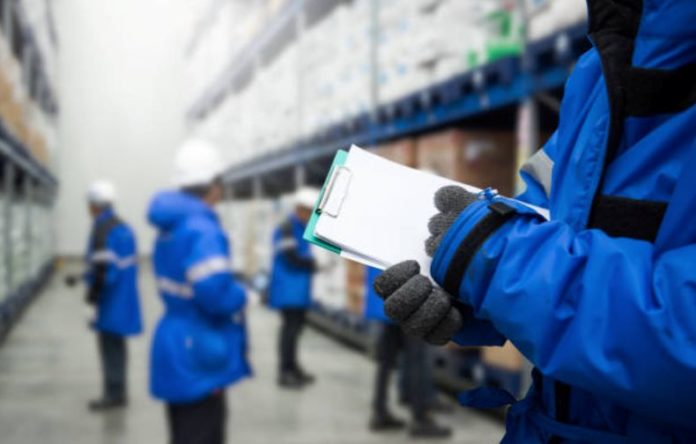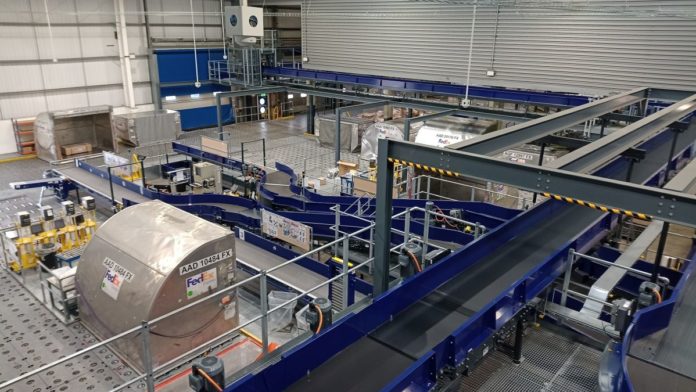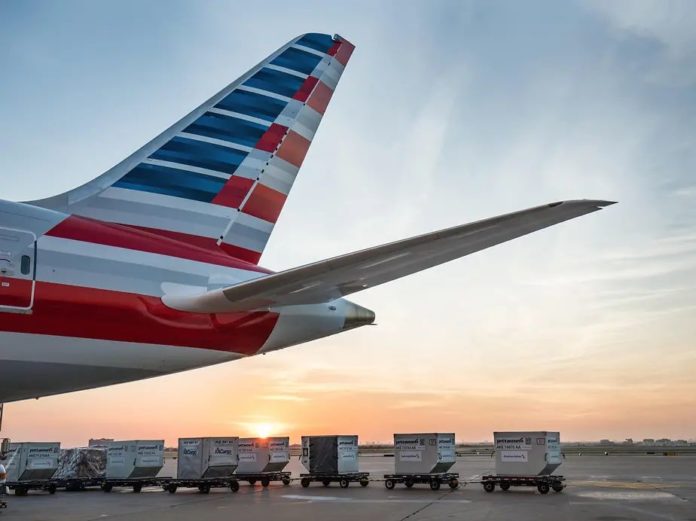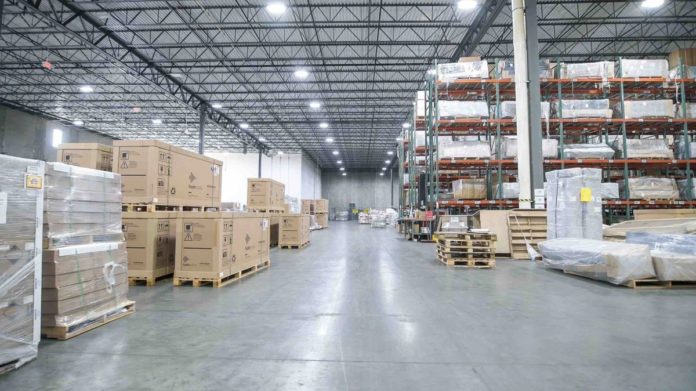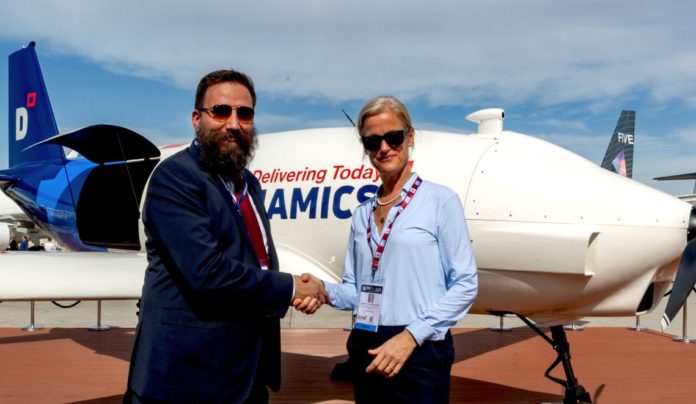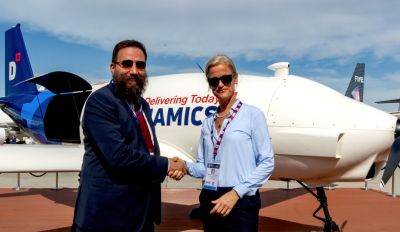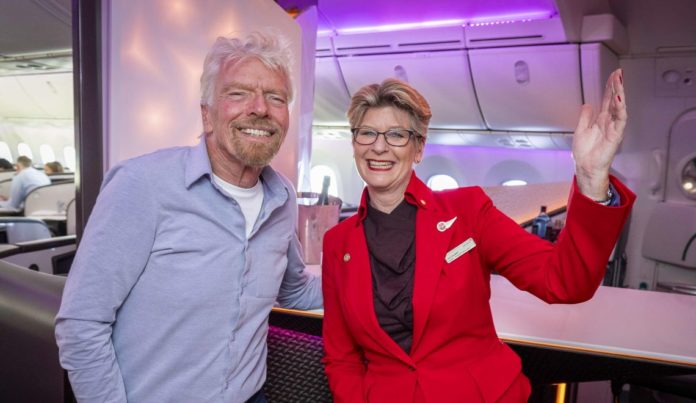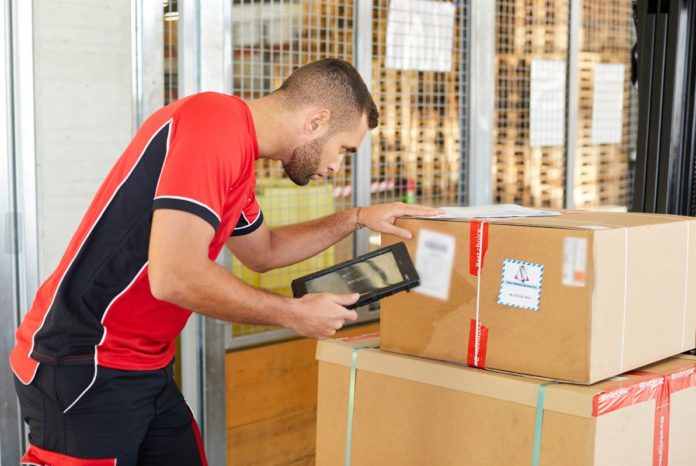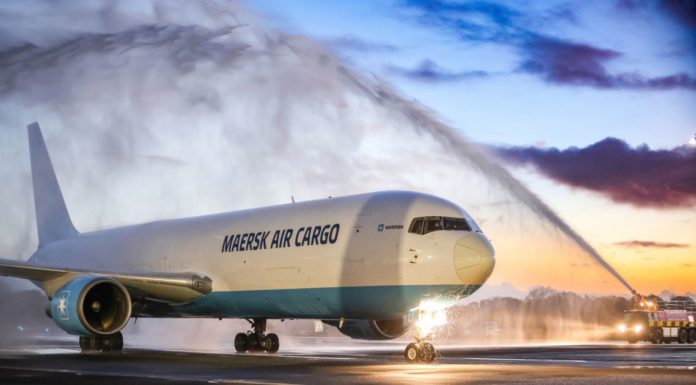Freight forwarder Kuehne + Nagel loaded four tonnes of Scottish salmon on board Virgin Atlantic’s Flight 100 from Heathrow to New York on 28 November, the first operated by a commercial airline to operate on 100% sustainable aviation fuel (SAF).
The cargo, from sustainable producer Bakkafrost, was non-revenue but K+N, one of Virgin’s top cargo customers, purchased Scope 3 emissions credits for the flight.
The Boeing 787 flight was a one-off, carrying no passengers apart from observers. It was the culmination of a collaboration by Virgin Atlantic-led consortium, including Boeing, Rolls-Royce, Imperial College London, University of Sheffield, ICF and Rocky Mountain Institute, in partnership with the UK’s Department for Transport.
Virgin Atlantic believes that SAF has a significant role to play in the decarbonisation of long haul aviation. The fuel is made from waste products, and delivers CO2 lifecycle emissions savings of up to 70%, whilst performing like traditional jet fuel.
It says that SAF can be used now, while other technologies such as electric and hydrogen remain decades away. However, it currently accounts for less than 0.1% of global jet fuel volumes; currently, aviation regulations do allow for a 50% SAF blend in the fuel used in commercial jet engines.
Virgin says its Flight100 proves that the challenge of scaling up production is one of policy and investment, and is calling on industry and government to move quickly to create a thriving UK SAF industry.
The SAF used on Flight100 was a blend of 88% HEFA (Hydroprocessed Esters and Fatty Acids) supplied by AirBP and made from waste fats and 12% SAK (Synthetic Aromatic Kerosene) supplied by Virent and made from plant sugars.
According to a Virgin factsheet, the aircraft would have its engines drained if remaining SAF, tested and refuelled with conventional aviation fuel before being returned to service.
Virgin Atlantic chief executive Shai Weiss, said: “Flight100 proves that Sustainable Aviation Fuel can be used as a safe, drop-in replacement for fossil-derived jet fuel and it’s the only viable solution for decarbonising long haul aviation. It’s taken radical collaboration to get here and we’re proud to have reached this important milestone, but we need to push further. There’s simply not enough SAF and it’s clear that in order to reach production at scale, we need to see significantly more investment. This will only happen when regulatory certainty and price support mechanisms, backed by Government, are in place. Flight100 proves that if you make it, we’ll fly it.”
The airline’s founder, Sir Richard Branson, said: “The world will always assume something can’t be done, until you do it. The spirit of innovation is getting out there and trying to prove that we can do things better for everyone’s benefit.”
Transport Secretary Mark Harper said: “Today’s historic flight, powered by 100% sustainable aviation fuel, shows how we can both decarbonise transport and enable passengers to keep flying when and where they want.
“This Government has backed today’s flight to take-off and we will continue to support the UK’s emerging SAF industry as it creates jobs, grows the economy and gets us to Jet Zero.”







